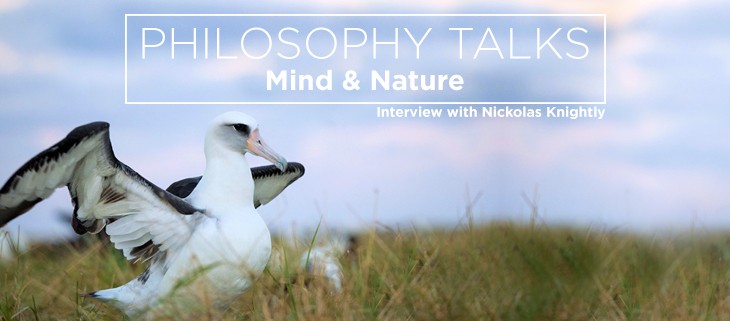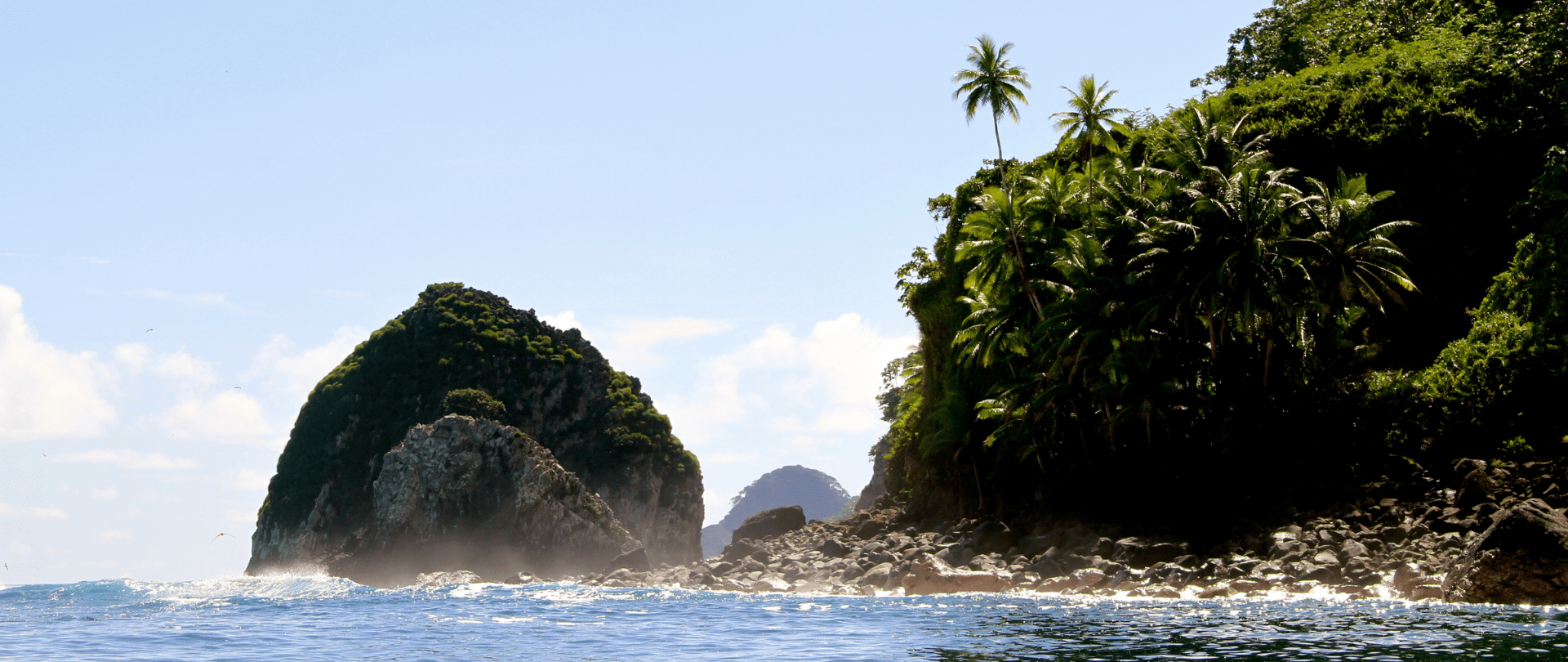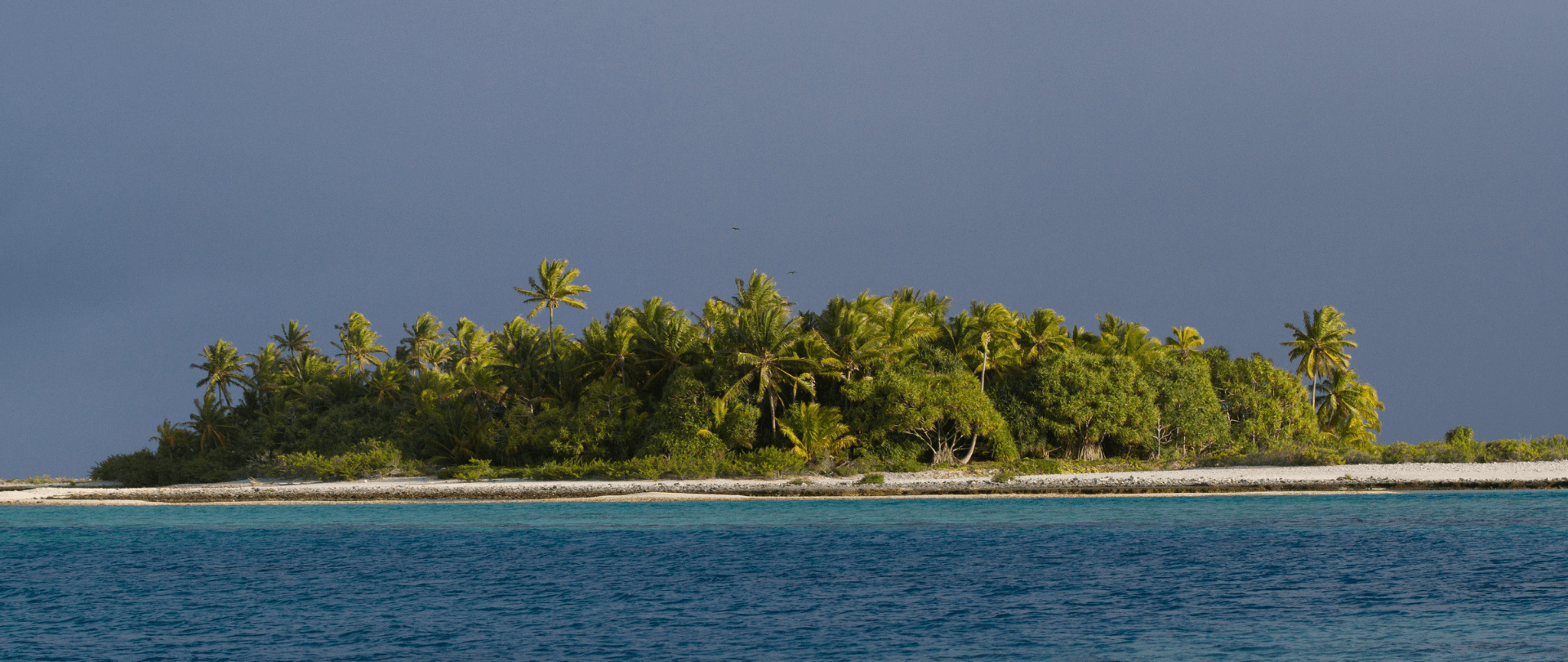The Ebiil Society: Champions of Palau
Ann Singeo, founder of our partner organization the Ebiil Society, shares her vision for a thriving Palau and a flourishing world of indigenous science!
Our 2024 Impact Report is live!
Published on
October 27, 2017
Written by
Sara
Photo credit
Sara

Does philosophy have a place in conservation? Philosophical inquiry can provide pathways to broader and clearer understandings of the daily efforts and deeper purposes of any pursuit, including conservation. The process of asking questions often gives rise to insight and new awareness even if the initial questions remain unanswered.
Sara Kaiser, Communications Specialist at Island Conservation, recently audited a class titled Philosophy of Mind at UC Santa Cruz. With this blog series, Sara hopes to highlight the questions and unknowns that pervade conservation work, demonstrate the value of inquiry, and stimulate productive dialogue and action throughout the conservation sphere–all in support of the flourishing of life on Earth. This blog series is not intended to make a claim or endorse a particular ethical stance or opinion by Island Conservation.
Nickolas Knightly is a philosopher at UC Santa Cruz. He is currently finishing his doctoral dissertation on philosophy as a way of life. His work arises at the intersection of ecology, art, and spirituality.
Sara: How can the study of mind elucidate the pathologies of thinking or the way we perceive, and help us to reorient ourselves so that we can make a positive difference with respect to conservation?
Nickolas: That’s a significant question. In one sense, we might say, “I am very interested in conservation. Why should I have to study the mind?” First we must see that the process of conservation will draw on our mind. Our mind constitutes our conservation efforts. Therefore, if we don’t know the mind well enough, we may sow seeds of further suffering. Sailing a boat can carry us to wondrous places, but we must first learn how to sail, learn how to use the boat, the wind, the stars, the waves. Likewise, the mind can do wondrous things, but we must first learn to use it, altogether with Nature. Furthermore, to study the nature of mind is to study the nature of Nature, and to examine the state of the natural world is to examine the state of the human mind. Mind and Nature are not two things.
To study the nature of mind is to study the nature of Nature, and to examine the state of the natural world is to examine the state of the human mind. Mind and Nature are not two things.
This comes back to understanding a deep non-duality, that conservation—or saner, more skillful and realistic living—is not just to make a positive difference for “the Earth,” but also for ourselves and the people we love, because maybe we don’t know how to love the Earth yet, but we still need to live in a realistic way. The other way around holds as well, because many people arrive at their first genuine experience of love in relationship to non-human beings and the natural world. The natural world can be a gateway to the sacred, whether one is religious or not.
In your question you spoke of a “reorientation,” and this is an essential matter. Ultimate reorientation in philosophy is to come home. We have to see that we are already home, live with an at-homeness, a groundedness, a basic sense of belonging to something that is greater than the self we think we are. For instance there are many religious people in the world, and if I am religious, and I believe the Divine is my home, I have to also see that I am never absent from the Divine—because that doesn’t make sense in any careful thinking about the meaning of the Divine. It’s a kind of paradox. I may have some experience of alienation from the Divine or, in more humanistic terms, a sense of being cut off from life—but I am Life. Each of us is Life. We’re not walking around inside of a box; we are life walking around. We’re participating in the whole vital dream. But we need to be attuned to that, and arrive in it fully. To be attuned to life, to be attuned to love, to be attuned to the Divine or whatever our philosophical orientation is, this is coming home to ourselves.
Now, how does mind play into this? We are getting at the question in a different way here. On the one hand, mind and nature are not two things. But on the other hand, we each have this deep need in the soul to come home, to get in touch with our highest values and our purpose, which cannot lead to the destruction of the conditions of life, and must instead constitute the ongoing renewal of life. How can we accomplish this? How would we become attuned to the Divine, and attuned to the conditions of life, other than through mind? Whatever we do, we do it through mind. This is not to make a duality of mind and body, but in fact to go beyond such dualities. Everything happens through our experience, and that experience is intimately related to mind, and further to the nature of mind.
On the one hand, mind and nature are not two things. But on the other hand, we each have this deep need in the soul to come home, to get in touch with our highest values and our purpose, which cannot lead to the destruction of the conditions of life, and must instead constitute the ongoing renewal of life. How can we accomplish this?
There is so much in your question that we could speak about it for many hours. But to highlight something else in it, we could say that, in one way or another, we can ask, “What does conservation have to do with mind?” Another crucial response to such a question is that it’s important that we be able to see that mind is all over the place. We’re not able to process that so easily in our current culture. I look over there, and I just see a tree—nothing but a tree. But that’s mind functioning. It’s the active, living, and indeed sentient functioning of mind. Bateson is very good at making that clear, Varela is good at making that clear, and there are other philosophers—Siddhartha, and Dogen, and others, in many traditions, who are good at making that clear. Some of them are not so clear about whether the tree is “sentient,” but they are clear that the tree manifests mind, and mind manifests tree. And Gregory Bateson, who was a lifelong atheist, was also clear that we can and probably should see a genuine sacredness in all of this mind, and in the unity of mind and Nature.
In any case, we need to see interrelationality, interwovenness. Our mind is enacting a world, but we don’t usually think of it this way. We think the mind sort of “reveals” the world, as if we perceive hard facts. But usually we do not see the way our own process of knowing ourselves and the world already limits what we can know. We may then look at the world and say, “Oh those people—that’s such a mess they are making, there’s so much violence over there.” But that’s our own mind, not just “their” mind that we see. We have to understand that, and understand how our own way of using our mind makes the world what it is.
And then there is the dimension of looking at the world and being more perceptive to mind however it appears—not just our own mind, but perceiving the functioning of mind beyond what I think of as myself or even beyond the human. Gradually, we perceive mind more and more pervasively, and this increased perceptiveness of mind both “inside” and “outside” of myself is essential. Eventually we may see the nature of mind. And both things are important: seeing mind and seeing the nature of mind.
Gradually, we perceive mind more and more pervasively, and this increased perceptiveness of mind both “inside” and “outside” of myself is essential.
In order to be able to see mind, we need refined perception and clarity—and also common sense and critical thinking—and most importantly a basic sense of wonder, which is the beginning, middle, and end of all philosophy and spirituality. Along with wonder, common sense and compassion are crucial. We must begin to understand that our thinking is making the world a certain way and we must take responsibility for it. Seeing mind is seeing the pattern of incoherence, the pattern of ignorance, the pattern of suffering that destroys the conditions of life, that leads to wars, that leads to conflict within me and between humans and other humans, between humans and nature, between humans and the Divine
Then we begin to see that other minds are creating worlds, and then we see that what grounds all of that is the nature of mind. So there may be many minds, and many of those minds are dangerous in some sense because they are doing something on top of life that is not conducive to life. And then there’s still a deeper level of the nature of mind which makes all of those minds possible. The nature of mind is whatever it is that makes mind itself possible—makes life possible. And studying that is where a greater, deeper transformation of arriving home will arise.
But we begin to come home immediately as we begin to recognize all these minds manifesting—as we say “Ah! Just like me! Just like me, that mind is trying to be happy and sometimes making a mess of it. And that’s how I am! I try to do the right thing and I often don’t do the right thing, or don’t do as well as I know I want to. That person in Iran and that person in France and that person in Korea and that person in Australia and that person in the White House—each of them also has a mind which can go astray like mine does. We’re in this together, and we are all importantly the same, even with all our vitalizing differences.” And then we can begin to understand one another, and we can see that we share mind not only with other humans, but also with Dolphin, Whale, and Tree. There too, with non-human minds, we must be able to say, “Just like me!” Even though these other minds, these other beings, have their own uniqueness, their own kind of magic, we can directly sense our deep resonance with them, and we can see that these minds, these beings, have to be taken care of. They have great potential (for themselves, for us, and for the world), and they are performing a sacred function.
Philosophy Talks
Philosophy Talks: Context and Values in Conservation
Philosophy Talks: Mind and Nature
Philosophy Talks: Self and Ecology
Featured photo: Laysan Albatross on Midway Atoll. Credit: Gregg Howald/Island Conservation
Check out other journal entries we think you might be interested in.

Ann Singeo, founder of our partner organization the Ebiil Society, shares her vision for a thriving Palau and a flourishing world of indigenous science!

This historic agreement aims to protect the marine and coastal areas of the Southeast Pacific.

Our projects to restore key islets in Nukufetau Atoll forecast climate resilience and community benefits in Tuvalu!

Island Conservation attended the 16th meeting of the Conference of the Parties to the Convention on Biological Diversity!

Island Conservation and partners have published a new paper quantifying ecosystem resilience on restored islands!

Climate Week NYC: what is it and why is it important? Read on to find out why Island Conservation is attending this amazing event!

With sea levels on the rise, how are the coastlines of islands transforming? Read on to find out how dynamic islands really are!

Join us in celebrating the most amazing sights from around the world by checking out these fantastic conservation photos!

Rare will support the effort to restore island-ocean ecosystems by engaging the Coastal 500 network of local leaders in safeguarding biodiversity (Arlington, VA, USA) Today, international conservation organization Rare announced it has joined the Island-Ocean Connection Challenge (IOCC), a global effort to…

Island Conservation accepts cryptocurrency donations. Make an impact using your digital wallet today!